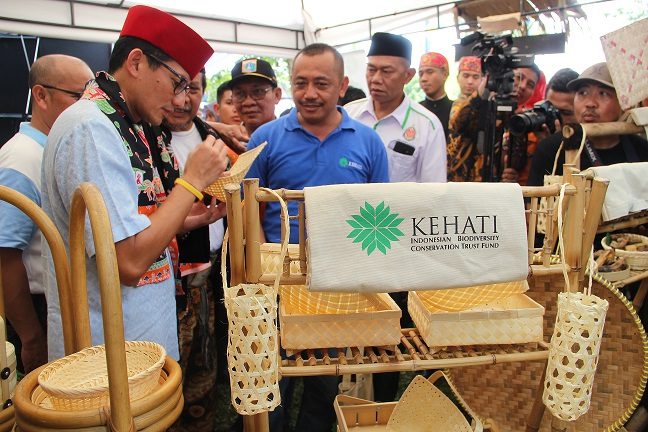Styrofoam And Plastics in Jakarta is Concerning, Time to Go Back to Besek

-
Date:
30 Apr 2020 -
Author:
KEHATI
DATE: 22 Mar 2018
AUTHOR: KEHATI
Jakarta – The threat of microplastic particles in Jakarta has become increasingly worrying over time. Particles are mainly produced from plastic and styrofoam waste from human life activities that pollute the megapolitan city environment, whose numbers are increasing from time to time.
Executive Director of the Indonesian Biodiversity Foundation (KEHATI), M.S. Sembiring, said, based on data from the Central Statistics Agency (BPS) in 2016, DKI Jakarta province’s waste production reached 7,099.08 cubic meters, making increase from 7,046.39 cubic meters in the previous year. However, only 84.7 percent of the amount of waste can be transported. The rest is wasted in nature, including flowing into the sea. Worse, waste that is not transported to landfills and partly flows into the sea is dominated by Styrofoam and other types of plastic.
Besides threatening human health, microplastic particles, especially from plastic plastics, are also very dangerous for the survival of flora and fauna.
“Therefore, the Provincial Government of DKI Jakarta must have a special strategy in dealing with this problem to save Jakarta from this microplastic threat,” Sembiring said.
Related to the plastic and styrofoam waste problems mentioned above, the KEHATI Foundation introduced the “back to besek (bamboo basket)” movement to the DKI Jakarta Provincial Government. The KEHATI Foundation’s Coastal and Small Islands Program Manager, Basuki Rahmad, explained that the use of baskets as food wrappers provides many benefits to the community, both those living in the upstream and downstream areas of the Jakarta watershed. Ecologically, people who live upstream will be asked to plant bamboo to meet raw materials for making baskets, which will automatically provide a flood solution in Jakarta. Economically, community’s small and medium businesses will be increased through the making of baskets.
“The use of bamboo baskets is a concrete and tangible effort to reduce the threat of microplastics as from the use of plastic and Styrofoam. As a first step, the DKI Jakarta Provincial Government can issue a policy by using baskets on internal events, such as meetings, banquets, and giving souvenirs,” said Basuki.
In the future, KEHATI hopes that the DKI Jakarta Provincial Government can encourage big franchise companies to use besek through cooperative schemes with small and medium sized suppliers, so that the synergy between small and medium entrepreneurs and large entrepreneurs can be established.
KEHATI also hopes that the DKI Jakarta Provincial Government can take advantage of the momentum of the international world which is combating plastic waste. This can be seen from the similarity of the themes carried by the two international commemorating day, namely Earth Day (April 22), and World Environment Day (June 5), namely plast
